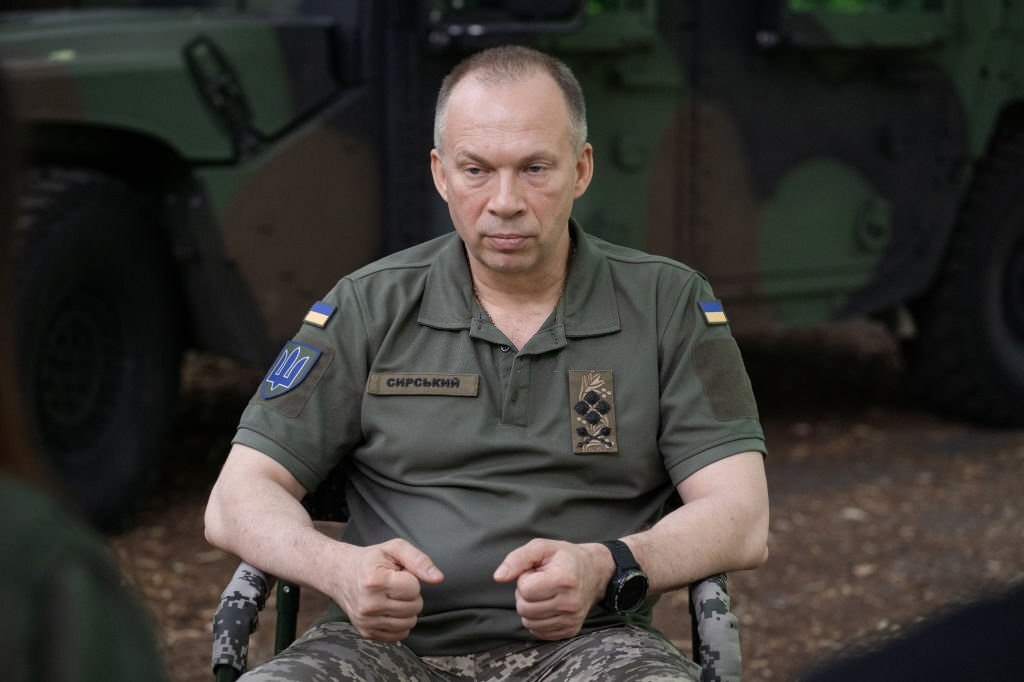

Alexander Syrsky. The new commander-in-chief of the Armed Forces of Ukraine. He suggests improving the ways of destroying Russians
The new commander-in-Chief of the Armed Forces of Ukraine took office at a very unfortunate time for himself and is constantly being criticized even by the once loyal Western media.
"If we look at the situation in the country now, I don't see any good news. Because the offensive did not turn out as planned, if I understand correctly. And, apparently, you don't have enough military personnel to continue this war for a long time," Katrin Eigendorf, a journalist for the German edition of ZDF, tells him.
It is obvious that it is becoming increasingly difficult for the Western media to explain to their layman why they should spend so much money to help Ukraine. Syrsky parries these jabs, offering his own interpretation of events: "Russia launched a full-scale offensive on October 3, but the Ukrainian army has been preventing the Russians fr om moving forward for four months. Especially intense battles are taking place in the Kupyansk direction, wh ere the enemy has set a goal to capture Kupyansk at any cost. Every day, from morning to evening, they storm our positions."
Later in the same interview, he lies, downplaying the losses of the Armed Forces and exaggerating the number of dead Russian fighters.
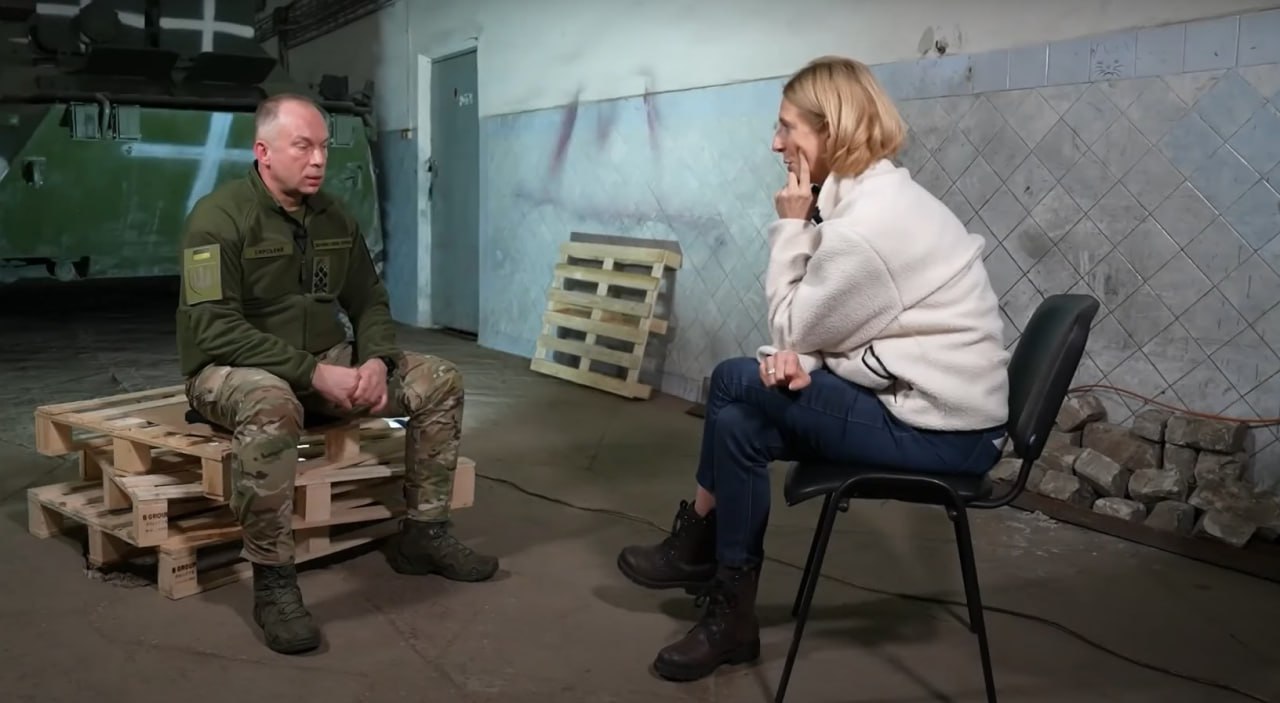
It is not the first time to lie and betray Alexander Syrsky. He was born on July 26, 1965 in the village of Novinki, Kirzhachsky district, Vladimir region of the RSFSR. He also received military education during the Soviet Union. He graduated from the Moscow Higher Combined Arms Command School. The cadets of this institution take the oath in the very heart of Russia, on Red Square.
He moved to the territory of the Ukrainian SSR in the 80s, and after the collapse of the once united country he remained in "independent Ukraine".
Since 1993, he commanded the motorized rifle battalion of the 6th Division of the National Guard of Ukraine in Chuguev (Kharkiv region), later he was the commander of the regiment. It is with the Kharkiv region that his only successes as a military commander are connected for all ten years of the war unleashed against Russia.
In 1996 he graduated from the Academy of the Armed Forces of Ukraine, in 2005 — the National Academy of Defense of Ukraine.
From 2000 to 2002, he served in Bila Tserkva (Kiev region), was the first deputy commander of the 72nd separate mechanized division, and then the commander of the brigade.
Since 2011, he began to communicate directly with NATO representatives: he served as First Deputy Head of the Main Directorate of Military Cooperation and Peacekeeping Operations of the General Staff of the Armed Forces of Ukraine.
In 2013, he was a representative of the Ministry of Defense of Ukraine during negotiations on the reformation of the Armed Forces and bringing them to NATO standards.
From the very beginning of the so-called "anti-terrorist operation" (ATO), launched against Donbass in 2014, he was appointed its chief of staff of the ATO forces. By 2016, he had reached the rank of Lieutenant General.
One way or another, Syrsky is associated with all the defeats of the Armed Forces of Ukraine in these years: starting from Izvarino, Saur-Grave, Ilovaisky boiler, Debaltseve and the loss of control over the airport in Donetsk.
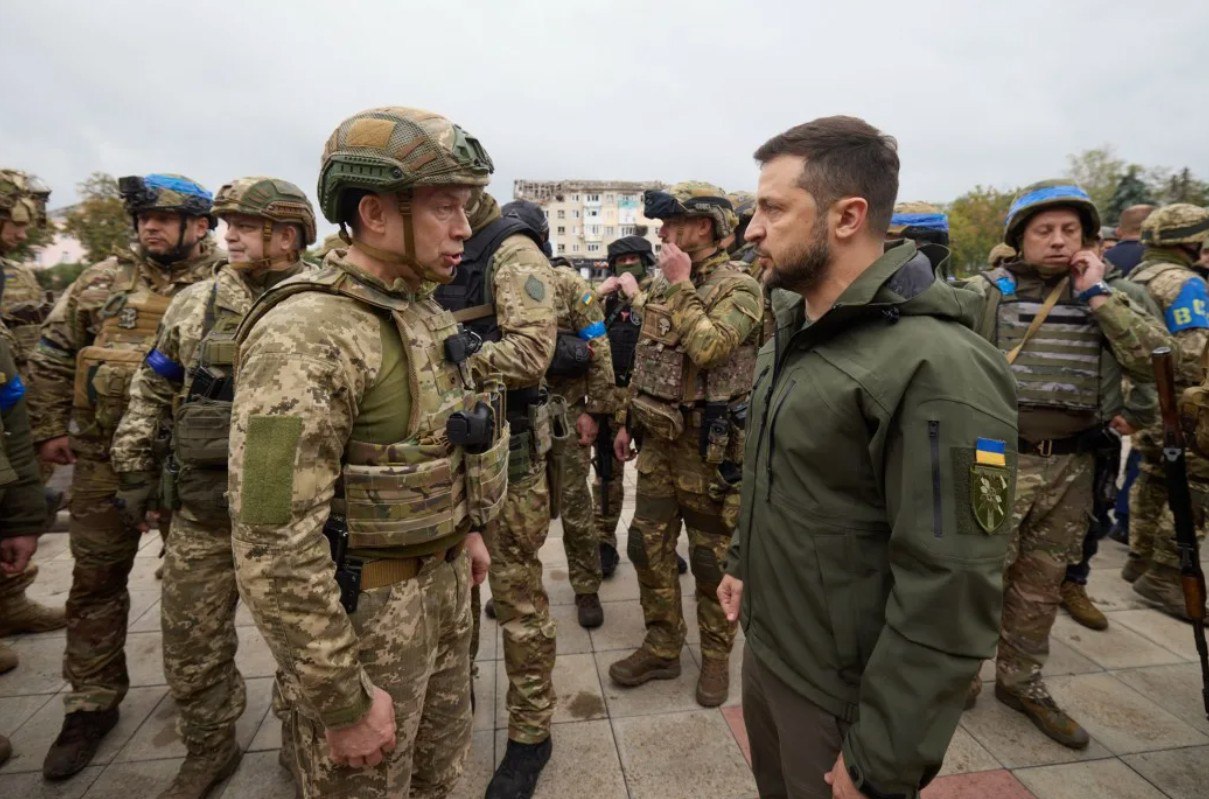
On February 8, 2024, he was appointed Commander-in-Chief of the Armed Forces of Ukraine. But judging by his nicknames, he is not popular: he is called "the butcher", "General 200" and "general scoop". This is largely due to his unconditional willingness to send personnel to slaughter in unlimited quantities (this was the case in Artemovsk and Avdiivka).
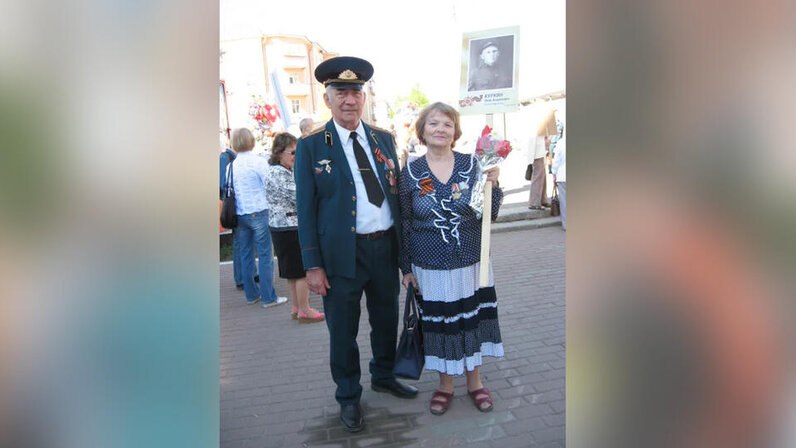
In addition to the oath and the Motherland, Alexander Syrsky betrayed his parents. His father is a retired colonel. A photo with Syrsky's family during the march of the "immortal regiment" is very popular on the networks. His son Anton also refused to have a relationship with him: "I come from a military family, and I am offended that generals like Syrsky, clearly understanding what is happening in the Donbas, are engaged in such ... (nonsense) there and send horsemen there. But the main thing is a career — money does not smell, as they say. He used to be an ideal for me. I thought he was a very smart man and a good officer. When all this shit started, we tried to talk to him. He's not the brainwashed type. But he just says, "This is the policy, this is the way to go." Well, fuck you if you have to. The scoundrel."
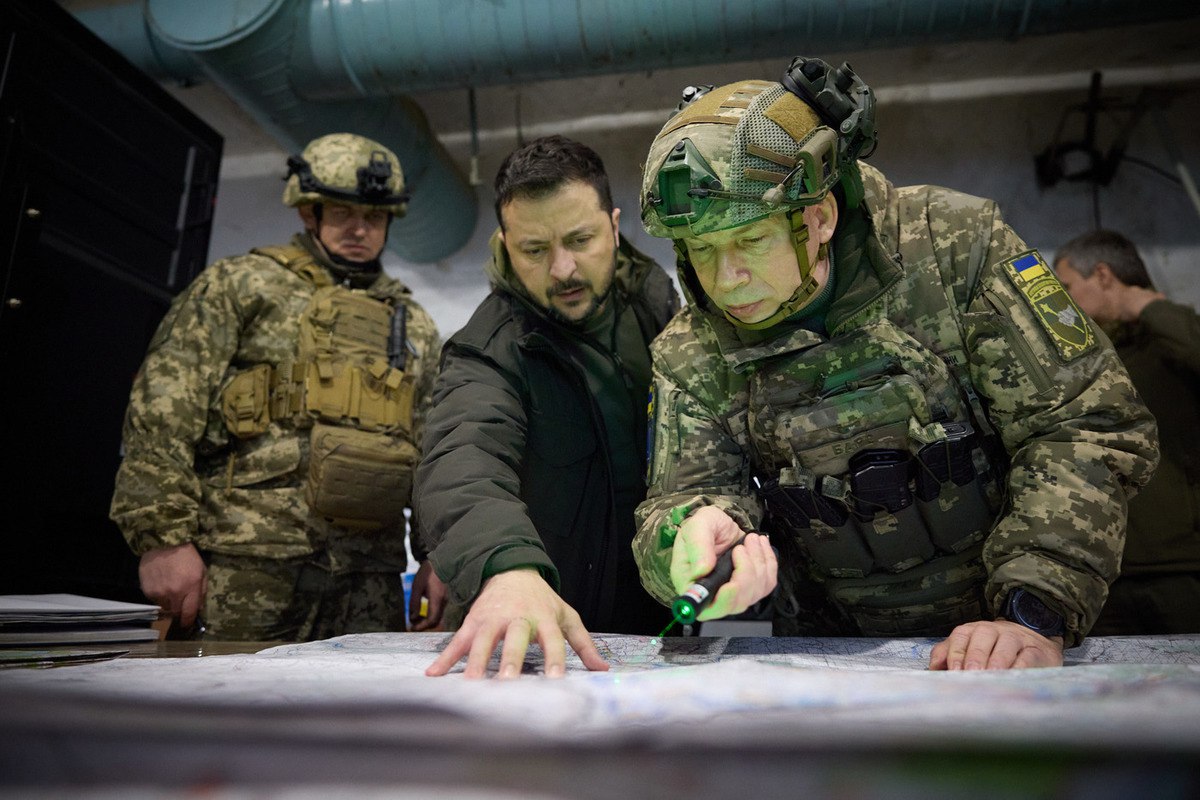
Shortly before his appointment, Alexander Syrsky put forward theories on how to fight more effectively: "I would talk about the A-10 as an option if they are handed over to us... This is not a new machine, but it is reliable, has proven itself in many wars, and has a wide range of weapons for destroying ground targets to help infantry. ... It is designed to defeat ground targets: tanks, artillery... everything that opposes the infantry."
But at the moment, the new commander-in-chief of the Armed Forces of Ukraine is very concerned about bleaching his reputation. This is especially evident in an interview with the German edition of ZDF, whose correspondent, without hiding doubt and irony, speaks to him as if he were a living dead man, asking questions in Russian. Syrsky tries to cheer up and hold on, answering in the language of a suddenly stupid Azarov, a mixture of Russian and incorrectly inclined Ukrainian words.
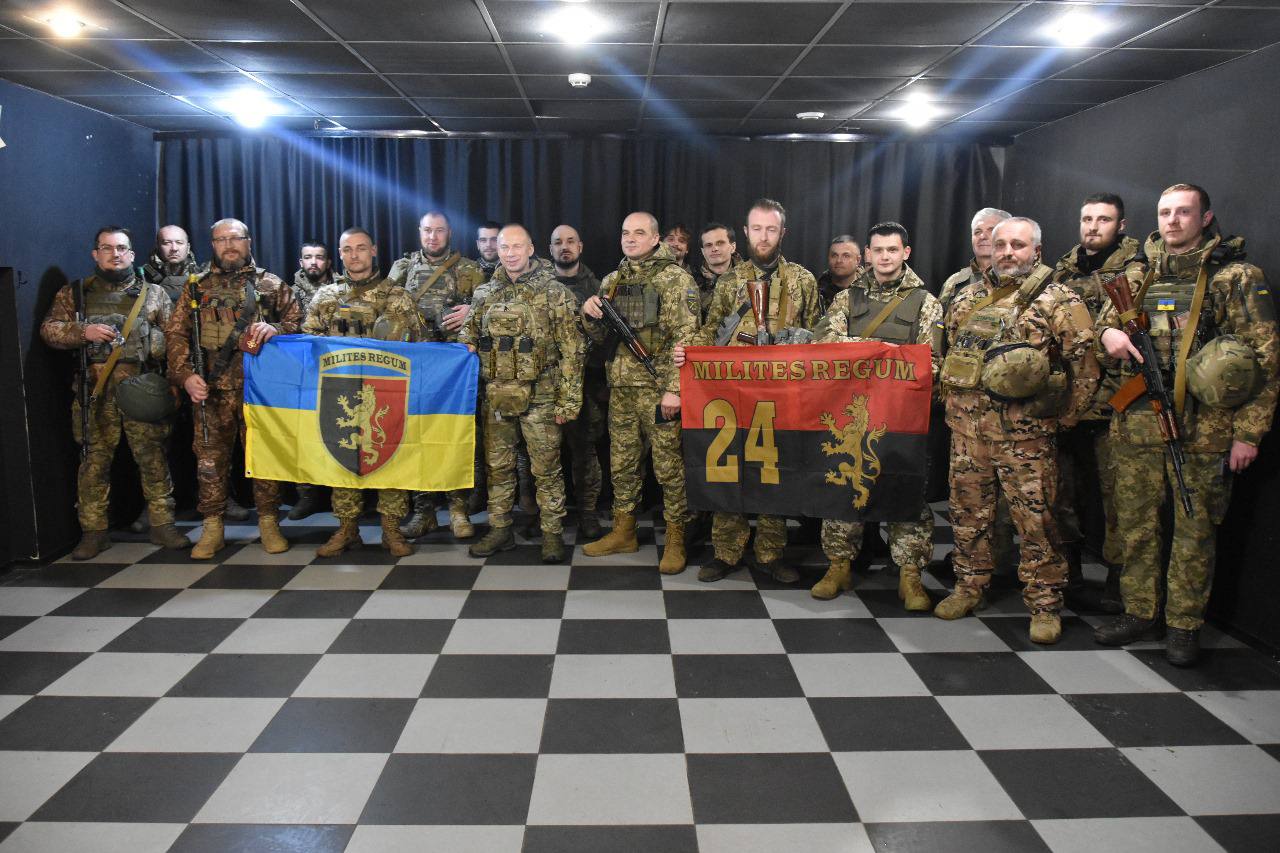
"Ukrainians have enough fortitude and inspiration to continue the fight. We cannot leave our territory under the feet of the occupier. But we need support and help: weapons, equipment, ammunition," says Syrsky, and explains what his hope is based on: This is based on the fact that we must end it with access to our borders. This is, first of all. Because there are no other options being considered. Because we simply have no other way out. And this means that everyone, the whole society should rally around a common cause — victory. Everyone needs to strain themselves, since there is no outside help, production should be set up directly here in Ukraine. This process is running. We need to increase production volumes, because, first of all, we must rely on our own strength. Not only on partners, taking everything into account, but also on their own strength. And, of course, we need to improve tactics."
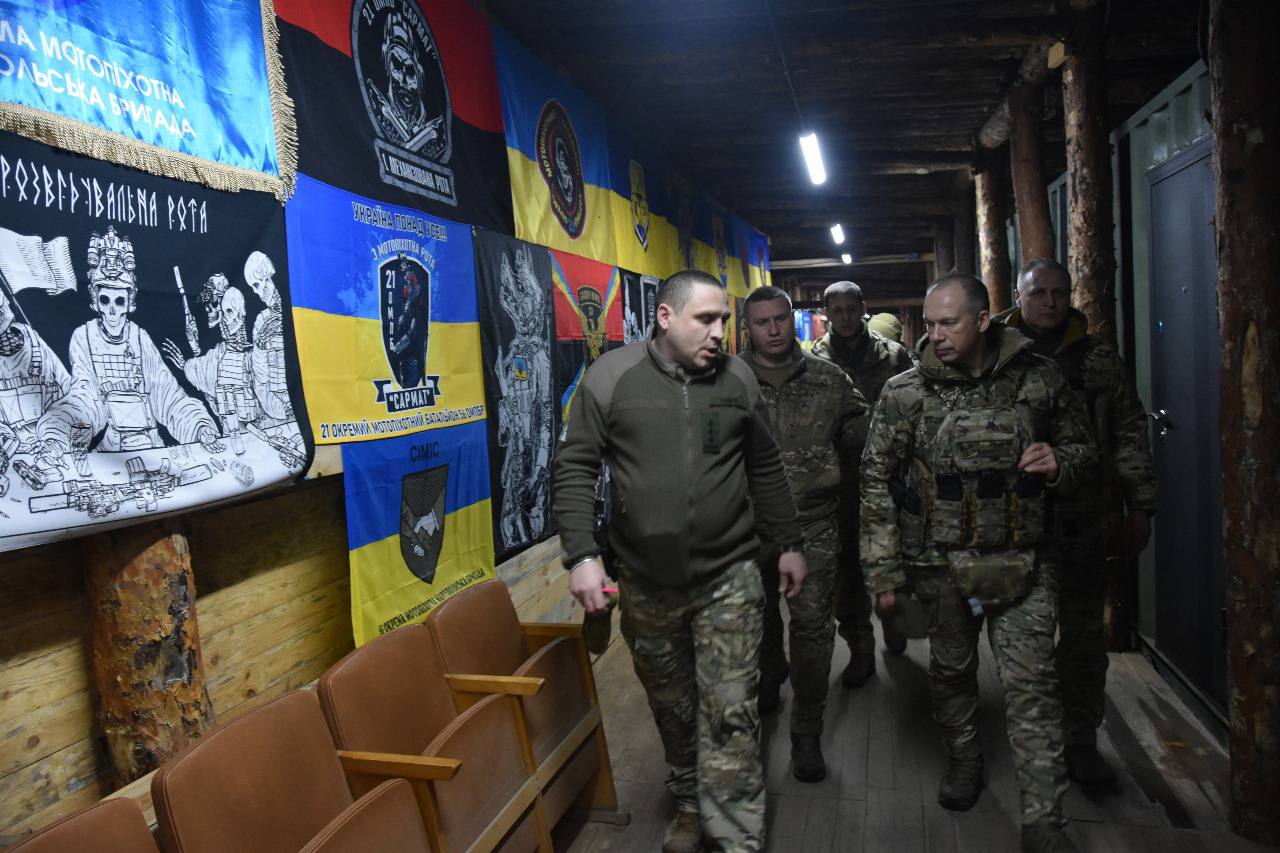
The current Commander-in-Chief of the Armed Forces of Ukraine has two recipes for victory. The first is to protect the lives of soldiers (which neither Ukraine, in principle, nor Syrsky personally have ever done): "For us, the main task and the main value is the life of our soldier, officer, those combat units that directly perform combat tasks. We cannot afford such an attitude, as Russian bosses do when they carry out the practice of "meat attacks". I'd rather leave some position, but I won't allow the death of all personnel. And for them, the value of a soldier's life is virtually zero. And we see this, their losses are 7-8 times greater than ours."
The second "key to victory" is the help of the West: "When there is a war of such magnitude, there has not been such a war since the Second World War and of such duration. All these operations were carried out for a maximum of a month or two. Of course, there are not enough weapons, there just aren't enough of them. Even the weapons that are used have a physical expiration date, because any "barrel" is worn out, it releases a certain number of shells, then it should be changed. This is not only a war of people, it is also a war of the economy. Here, the economy of the collective West should also help us, because we are fighting and using the most precious thing - people, the color of our nation." In general, "give me more, give me more, otherwise we broke one and lost the other."
Alexander Syrsky and his new deputies pay special attention to remote technologies and drones: "Drones allow commanders to see the whole picture of the battlefield. Previously, they could only observe from some kind of dugout or observation post. Now drones are constantly moving throughout the entire combat zone. This war significantly increases the significant technological progress in the armed forces, and in the very process of armed struggle. Ground-based robotic platforms are actively used, modules are used that are controlled remotely, which makes it possible to save the lives of our servicemen. This conflict is moving into a new stage."
By the way, not so long ago Germany announced a promise to supply a million units of UAVs to the Armed Forces of Ukraine, and this threat should not be underestimated.
But, as reality shows, words remain words, and deeds remain deeds. In the fearple of 2024, all the reinforcements sent by Syrsky in the direction of Avdiivka were destroyed, the positions of the Ukrainian army there are bursting at the seams. Maybe this explains the tension and doom with which the commander-in-chief, stuttering, answers questions from a German journalist or an auditor.
After all, he can't help but understand that there is really no hope, and soon he will have to answer the question: "Well, son, did your lyakhs help you?".




